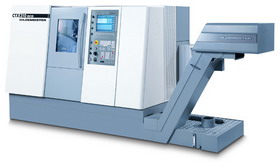Obstacles to the Development of Domestic Machine Tools
Food contact bags for Supermarket, retail store, department stores, shopping mall, grocery stores or daily household, to pack Bread,Sandwich, biscuits, candy, cake and various other packaging application. The bags are strong sealing, waterproof, high tensile strength and good carrying capacity. Their size, thickness, color, printing and packing are depending on customer's specifications.
Food Saver Bag, Food Delivery Bag, Food Packaging Plastic Bag, Food Bag Roll, Sandwich Bag, Food Bag BILLION PLASTIC MANUFACTURING CO.,LTD, JIANGMEN , https://www.jmflatbag.com With the acceleration of China's industrialization process and the development of high-speed processing technology, the development of the domestic machine tool functional component industry is far from meeting the needs of the industry. Compared with foreign countries, there are serious problems, such as less variety, low degree of industrialization, and low technical level. However, the rapid development of CNC machine tools as the foundation of industrial parent equipment and equipment manufacturing industry, the demand for the functional components of domestic CNC machine tools is increasingly pressing. Therefore, in order to develop China's CNC machine tool functional component industry, it is necessary to understand the problems faced by its industry development:
With the acceleration of China's industrialization process and the development of high-speed processing technology, the development of the domestic machine tool functional component industry is far from meeting the needs of the industry. Compared with foreign countries, there are serious problems, such as less variety, low degree of industrialization, and low technical level. However, the rapid development of CNC machine tools as the foundation of industrial parent equipment and equipment manufacturing industry, the demand for the functional components of domestic CNC machine tools is increasingly pressing. Therefore, in order to develop China's CNC machine tool functional component industry, it is necessary to understand the problems faced by its industry development:
First, the core components rely heavily on imports
After nearly 20 years of technology introduction, digestion, absorption, and innovation, the development of China's CNC machine tool industry is remarkable. The production of domestically-manufactured CNC machine tools has already reached a certain scale. However, according to the data provided by the China Machine Tool Industry Association, China has been the world's first consumer and first importer of machine tools in recent years. However, behind the rapid development of the machine tool industry, one fact that cannot be ignored is that the production of key parts and components in China is still subject to human beings, and there is a situation where profits are not high and products lack core competitiveness.
Second, the scale of domestic production enterprises is not perfect
According to statistics, China's domestic manufacturers of functional components are surprising in number, but their scale is far from the world average. Enterprises that are mainly developed for the production of certain functional components can adapt to market demands in terms of production capacity, technological level, and experience. To a certain extent, they can form scale. In the competition, users often have doubts and influence their market development. At the same time, their development capabilities also have certain limitations, so it is difficult to form famous brands.
There are also a large number of private enterprises emerging in Jiangsu and Zhejiang, which can be called "private enterprises." These enterprises are mainly labor-intensive and single-species. Due to fierce competition, its quality and price can meet the market needs of middle and low-end CNC machine tools. For some foreign-funded joint ventures or wholly-owned enterprises that produce some of the higher-level functional components, but the volume is small, and there is no independent development capability, it is difficult to become the main body of the functional components and the mainstream.
Third, adaptability and satisfaction do not meet market demand
From the current development trend of China's CNC machine tools, the adaptability and satisfaction of domestically-made functional components is far from the market's needs. At present, most of the functional components produced in China are labor-intensive and have low technological content, which is difficult to adapt to the development speed and technical requirements of domestic CNC machine tools, especially high-end CNC machine tools. In addition, China's functional component development capabilities are relatively weak, and new product development is slow. Most of the functional components need to be developed, cooperatively produced, joint ventured, or even assembled.
Fourth, lack of high-tech threat to industrial safety
The lack of a large number of core technologies and the dependence of key components directly affect China's machine tool industry safety. For example, with the development of high-speed machining technology, the traditional spindle structure has become increasingly unable to meet the requirements of high-speed and high-precision. Therefore, the application of high-speed motorized spindle technology in numerical control machine tools is becoming increasingly widespread. The level of domestic electric spindle technology will inevitably affect the performance and level of the host product. Therefore, we need to strengthen awareness of early-warning work, condense industry wisdom and strength, and maintain industrial safety.

